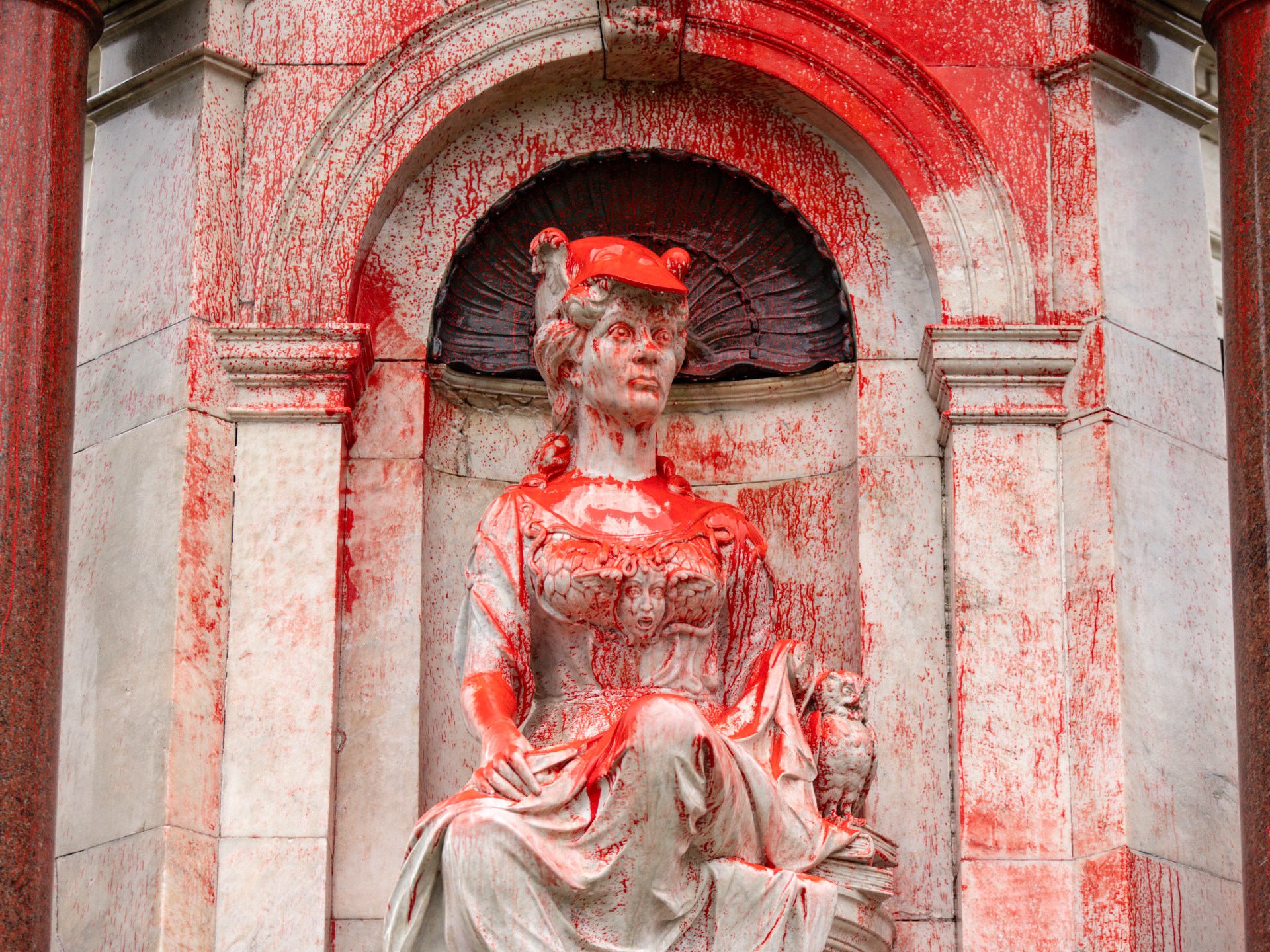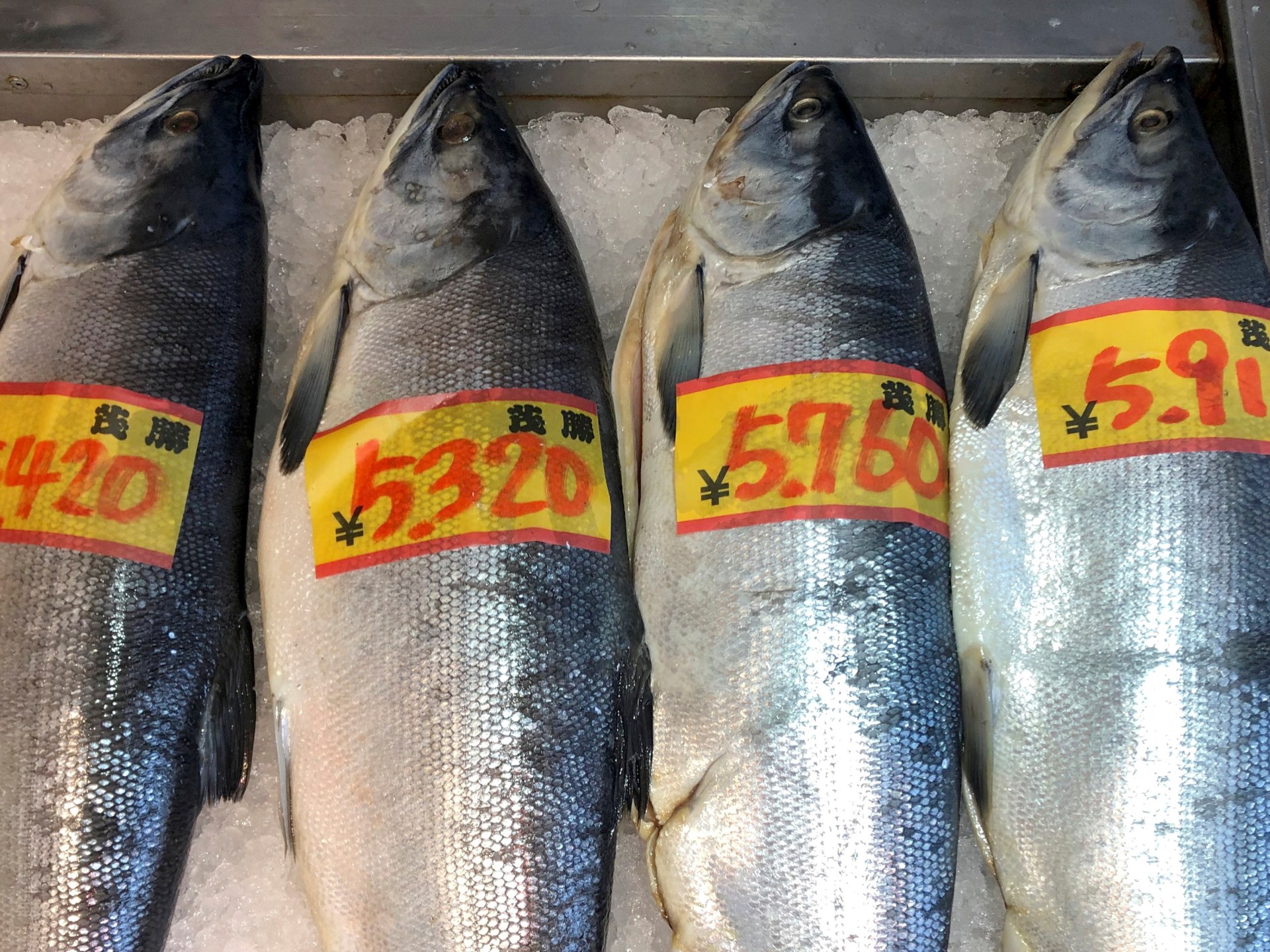Toppled statues, protests: Australia marks contentious national holiday
Thousands join marches in major cities amid growing debate over holiday once known for barbecues and beach trips.
Thousands of Australians have gathered at rallies against the Australia Day holiday, which marks the arrival of British colonists in 1788 and has become increasingly contentious.
Protesters gathered on Friday at Invasion Day rallies in Sydney, Melbourne and other major cities across the country, according to the Australian Broadcasting Corporation (ABC).
Once known as a time when Australians held barbecues and went to the beach to mark the end of the summer holidays, debate has grown over the meaning and purpose of the holiday, which is marked on January 26; the day a fleet of 11 British ships carrying a human cargo of convicts arrived in present-day Sydney in 1788.
Indigenous people refer to it as Invasion Day or Survival Day because it marked the start of a sustained period of discrimination and dispossession of Indigenous peoples without the negotiation of a treaty. The lack of such a treaty puts Australia out of step with other countries including the United States, Canada and New Zealand.
On the eve of this year’s holiday, protesters damaged two monuments to the country’s colonial past in the southern city of Melbourne, itself named after a former British prime minister.

A statue of Captain James Cook, who mapped the coast around Sydney in the 18th century and first claimed the territory for Britain, was sawn off at the ankles, while a monument to Queen Victoria was doused in red paint.
Images posted on social media showed the Cook statue lying on the ground with the words “The colony will fall” spray-painted on the stone plinth where it had previously stood.
Protesters threw red paint at the same statue in January 2022.
“This sort of vandalism has no place in our community,” said Victoria state premier Jacinta Allan.
At Friday’s rally in Melbourne, organiser Tarneen Onus Browne said the holiday needed to go.
“We believe that there is no day in the calendar that massacres and violence didn’t happen,” Browne, who represents the Warriors of Aboriginal Resistance, told the ABC.
“That’s what we’ve been coming out every year to say, and we also want to dispel the myth of this colony and the discovery of it.”
Hundreds of people also attended dawn services to mark January 26.
“Basically if you break it down, it means peace, unity and coming together, and acknowledging the past so we can move forward,” Jason Briggs told the ABC at a We-Akon Dilinja, or mourning reflection ceremony, in Melbourne.

He said such activities were designed to bring Australians together.
“We’ve got to look forward to a pathway that takes us and brings us to a place where we can engage in a better dialogue about resolving issues, differences, reconciling outstanding matters and say, hey, we’re all in this together, we’re a nation, we’ve got this country, we’re all fellow Australians,” he said.
Polls show a majority of Australians are keen to keep the public holiday and the name, but are divided, often along political lines, about changing the date.
Cricket captain Pat Cummins, perhaps the country’s most prominent sports personality, this week suggested a more inclusive date could be found.
“I absolutely love Australia. It is the best country in the world by a mile,” he said.
“We should have an Australia Day, but we can probably find a more appropriate day to celebrate it.”
Last October, Australians rejected changes to the 1901 constitution that would have recognised the country’s first inhabitants and created an Indigenous consultative body known as the Voice to Parliament.
Some 3.8 percent of Australia’s 26 million people are Indigenous.
They are among the country’s most disadvantaged people and face issues including poor health and education outcomes as well as high imprisonment rates.




